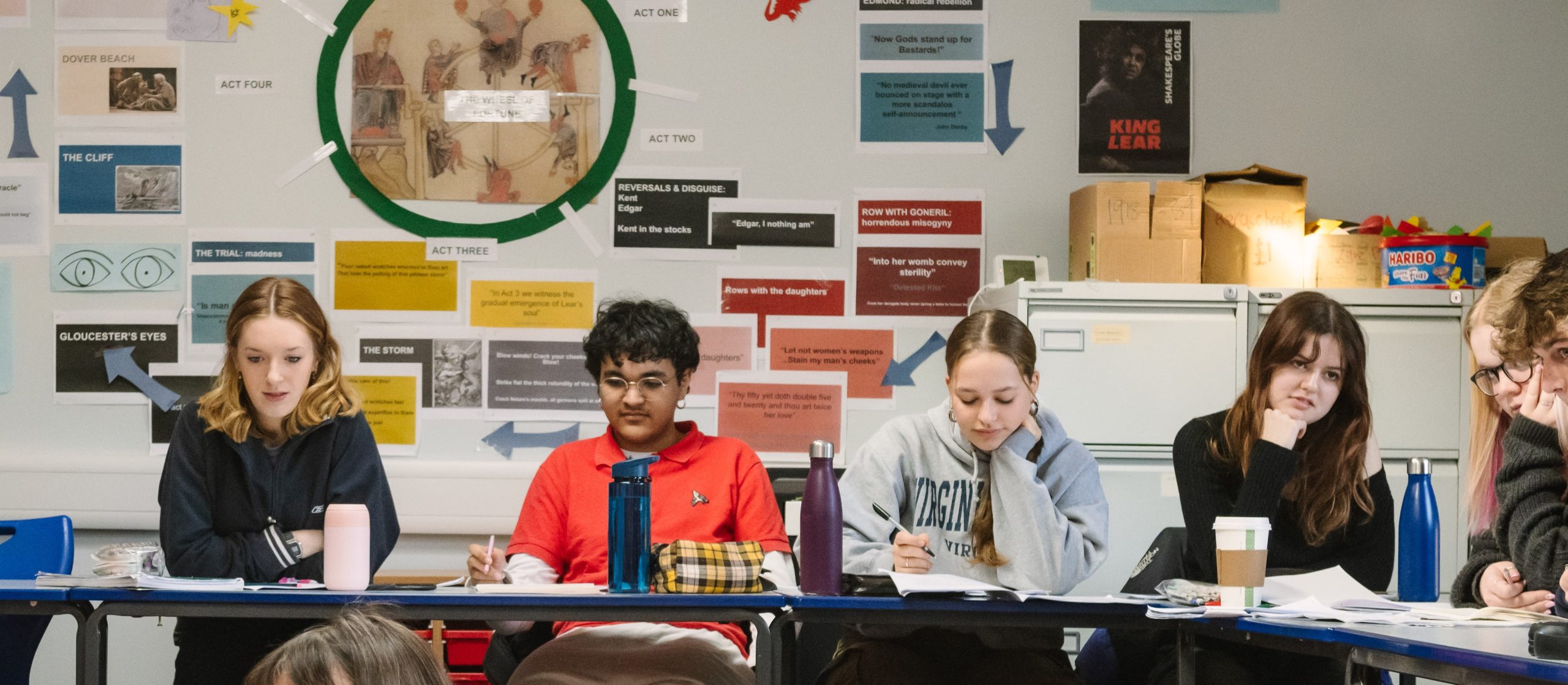
English Literature
Studying English Literature offers us the opportunity to study who we are and the ways we live. It invites us to critically engage with exciting, interesting and challenging aspects of the world we live in and the ways writers present such issues.
We read, discuss, analyse and write on plays, novels and poetry from the past and the present. We study the ways in which writers use language, form and structure to convey meaning. We consider interpretations by different readers over time, as well as how culture and context influences readers and writers. All work is assessed through essays and you will learn how to write effective academic arguments with a range of textual, critical and contextual support.
PLEASE NOTE: Studying English Literature at Advanced Level is an invitation to engage in and examine critical and theoretical discourse on challenging and sometimes difficult topics, all of which are dealt with intellectually and sensitively. You will also be expected to read at least two novels independently as preparation for study in class and for coursework. The ability to read novels independently is therefore essential, as is a commitment to writing essays.
I have greatly enjoyed the way teachers encourage us to develop our own ideas about texts, which at first sight appear opaque, helping us gain an understanding and sensitivity to underlying themes and messages which are hidden in literature.
Rosemary Little
Course Essentials
Courses Available
A Level
How The Course is Assessed
80% exam, 20% coursework
Career Pathways
Studying English Literature is one of the most prestigious and most flexible of qualifications, offering you a choice of career paths ranging from the law, the civil service, social services, advertising, education, administration in the public and private sectors, and in management roles in all but the most scientifically technical careers.
Transferable Skills
Effective oral and written communication, analysis and critical examination of a diverse range of texts; teamwork, research skills, independent thought, reflection and judgement.
Other Information
You can also participate in workshops, trips to the theatre, conferences and university visits. There are visits to the College by writers and speakers, enrichment in creative writing and the opportunity to become involved in public readings and producing anthologies.
Enquiries To
Amy Jewell: alj@varndean.ac.uk





